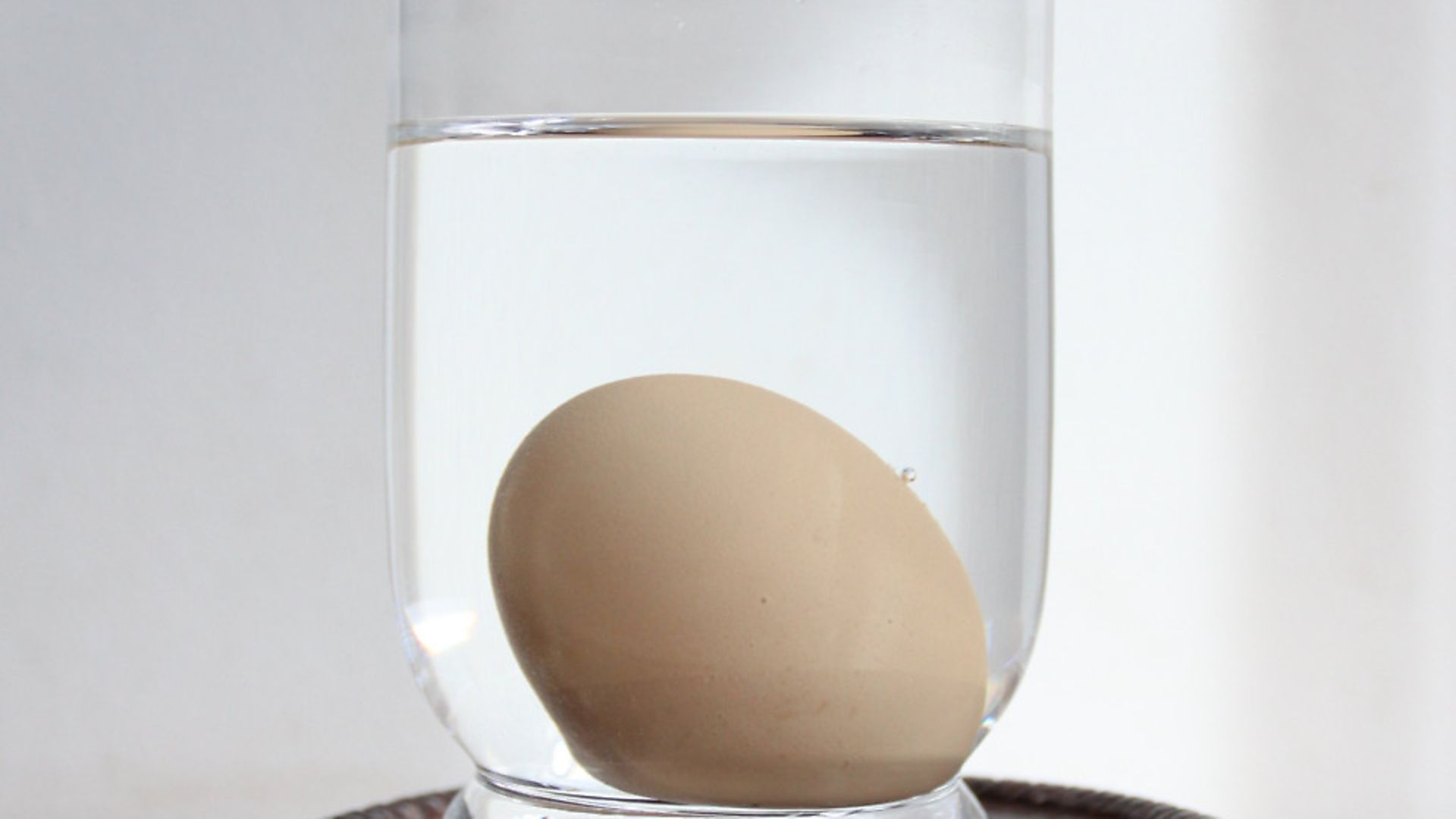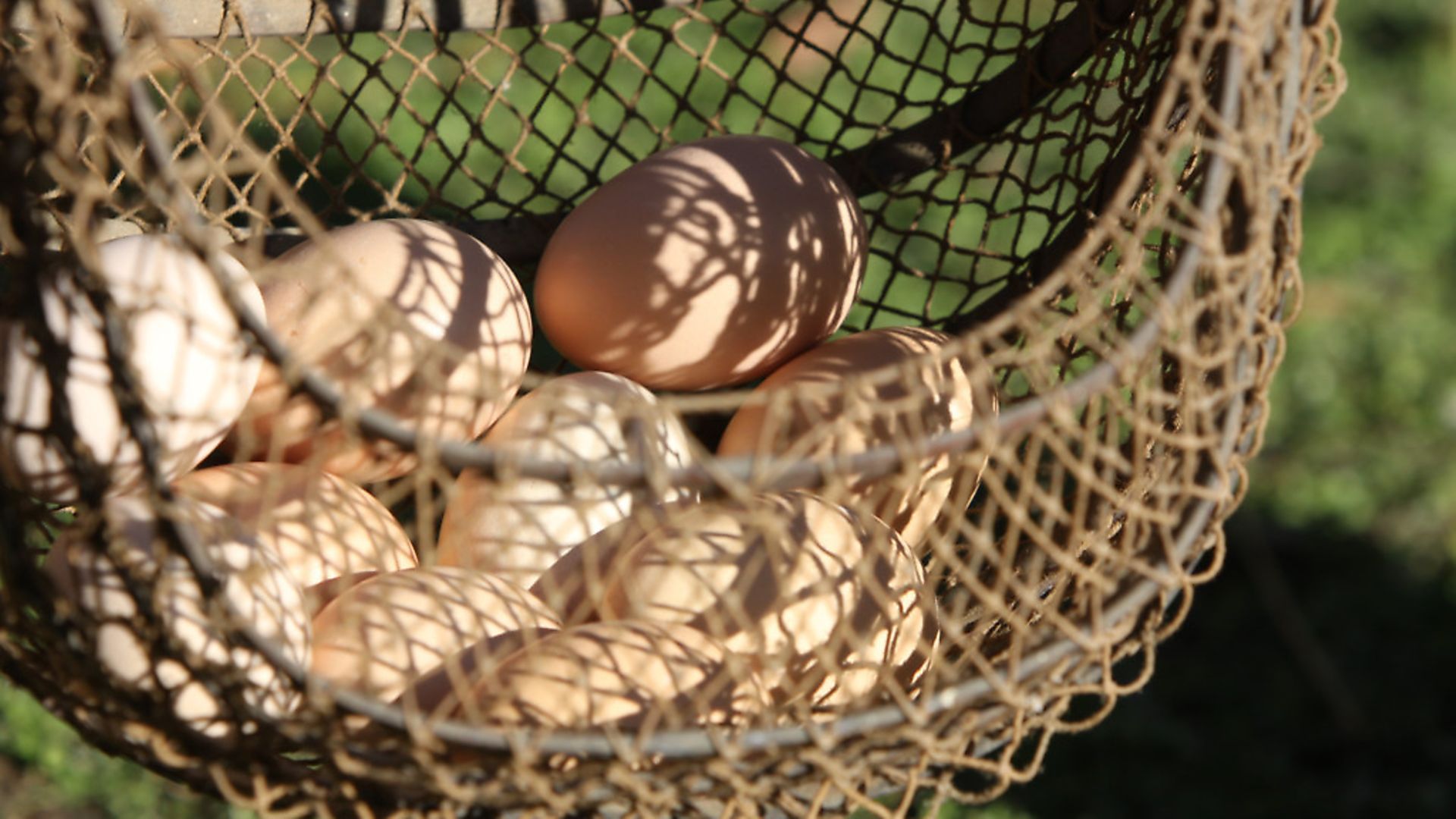Julie Moore examines a key issue for henkeepers

Whilst your family’s consumption of eggs tends to remain fairly constant year round, your hens’ production of those delicious edibles doesn’t! After a relatively few barren months, you’re now finding yourself inundated with precious eggs and your hens show no signs of slowing down.
How do you keep that backlog of ‘fresh’ eggs, fresh? Should you wash and refrigerate your eggs?
The washing and storage of eggs are two of the most controversial egg-related topics amongst avid backyard hen keepers. One camp says you should wash fresh eggs and every egg before you store it, whilst others say no washing is necessary. One camp advocates refrigerating eggs as soon as possible, whilst others believe eggs should be kept at room temperature.
Mother Nature has provided an efficient and effective defence mechanism to protect against bacterial contamination of the contents of an egg which has the potential to develop into a chick. Consider how chickens reproduce naturally in the wild. A hen will lay a clutch of eggs, perhaps between 10 and 12 in her nest — the first laid is already at least 10 days old before she sits to incubate the eggs. The oldest egg is not only likely to be viable after being left in the elements but also uncontaminated with bacteria which could otherwise kill the developing embryo.
Eggshells are almost entirely composed of tiny calcium carbonate crystals. Although an eggshell appears solid to the naked eye, it has thousands of microscopic pores between the crystals forming the shell. These tiny pores allow for the transfer of moisture, gases and bacteria between the inner and outer eggshell.
Just before physically laying an egg, a hen applies a thin, almost transparent layer on the outside of an egg called the bloom. This protective coating seals the thousands of tiny shell pores, thereby prohibiting the transfer of bacteria from the outside to the interior of the egg.

An egg’s bloom remains intact so long as an egg is not washed. Rinsing or washing an egg removes the protective layer and re-opens the eggshell’s pores.
As keeping the natural bloom intact is imperative to facilitate egg storage, it’s important that you minimise eggshell contamination and collect as many clean eggs as possible (see April ‘How to Get the BEST Eggs’).
Not washing your eggshells is the simplest and most natural approach to protecting the integrity of your eggs, preventing the spread of bacteria.
I personally do not wash any egg. If I find a dirty eggshell, I either wipe the dirt off with a dry cloth or use sandpaper to gently brush off the contaminants and then put the egg where I can use it next.
If you understand the ‘no wash’ argument, but still have an overwhelming need to clean your eggs, regardless of logic, then it’s important to ascertain the best method to do so.
Never use bleach, soap or other chemical cleaners to wash eggs. When the bloom is removed, these unnatural substances can easily pass through the shell’s pores and contaminate the interior part of the egg that you will eat. Having chemicals on your eggs rather defeats the object of healthy, wholesome fresh food!
Washing eggs in cool or cold water creates a vacuum effect, pulling unwanted bacteria inside the egg even faster. Soaking dirty eggs in water is not recommended since contact with water will quickly remove the bloom, leaving the shell’s pores open to absorb the contaminants of the water in which the egg is soaking. The longer an egg is left to soak, the greater the risk of bacteria and other microbial contaminants penetrating the shell.
The best method to wash fresh eggs is to use warm water that is at least 32C. The warm water causes the egg’s contents to expand and push dirt and contaminants away from the shell’s pores. Never soak eggs, even in warm water. Washed eggs must be thoroughly dried before storage — storing wet eggs encourages the growth and transfer of bacteria on eggshells to the egg’s interior.
Don’t refrigerate eggs
Eggs don’t need to be refrigerated. My eggs are kept at room temperature, away from direct sunlight and any heat source. I’ve kept them for around two months and they’ve still been good to eat.
In the EU, it is generally suggested that eggs should be stored at an ambient temperature of around 17 to 23C whilst in the US, eggs are found in the chiller dairy cabinets in the supermarkets. The difference in approach is that US eggs destined for supermarket shelves are washed and sprayed with a chemical sanitiser to reduce the risk of salmonella infection. Once the eggs have been cleaned, they are stored at a temperature of 7.2C or lower to prevent the growth of bacteria and the eggs from deteriorating quickly.
After an egg is refrigerated, it must be kept at that temperature. A cold egg left out at room temperature can sweat, facilitating the growth of bacteria that could potentially contaminate the egg.
Supporters of refrigeration claim that an egg kept at room temperature for one day is the equivalent to keeping it for about a week in the fridge — refrigerated eggs keep seven times longer.
Be careful not to store your eggs next to something smelly like an onion — eggshells are porous and will absorb odours! Store eggs in a carton or covered container.
Storage tips
Every egg that your hens lay has an air pocket at the blunt end. As an egg ages, the air pocket will get larger as air and bacteria are allowed through the eggshell pores and moisture escapes. Bacteria and air entering through the eggshell encounter the white or albumen first. The albumen provides a protective layer for the yolk which is the more perishable part of an egg.
If an egg is stored pointy end up, the air pocket has a tendency to rise through the egg towards the yolk, bringing any bacteria with it. This will quicken the aging process, increasing the likelihood of bacteria reaching the yolk and contaminating the egg.
Eggs should be stored pointy end down so the air pocket remains at the blunt end and any bacteria is kept as far as possible from the perishable yolk so the eggs stay fresher longer. You can see the air pocket for yourself: by cracking open a hard-boiled egg at the fat end.
Image(s) provided by:
Julie Moore







